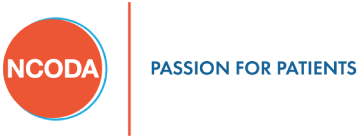The distribution of oncology and hematology medications is complex and highly regulated, involving multiple stakeholders such as manufacturers, distributors, pharmacies, and healthcare providers. One of the most critical aspects of specialty distribution is the use of Limited Distribution Networks (LDNs), which are networks utilized by pharmaceutical manufacturers to control the distribution of specialty medications, including many cancer treatments. LDNs typically restrict the distribution channel for a pharmaceutical drug to one, or a very small number of distributors, ensuring safe distribution of high-risk medications to the patient populations they treat. The term “Limited Distribution Network” does not specify the types of pharmacies included; it only vaguely defines the number of pharmacies allowed to distribute a particular medication.
While LDNs are necessary to ensure that high-cost, high-complexity specialty medications are handled appropriately, the nuances in cancer care delivery in the United States, coupled with the drug-to-drug variability of limited distribution in-network pharmacies, often make patient care challenging and can negatively impact how patients access oncology medications. In contrast to other specialties, which may not provide medically integrated pharmacy services. In 2019, 32.1% of oncologists practiced in sites with in-office dispensing capabilities,1 and this number has continued to grow over time. This integration allows patients to receive their cancer medications where they receive their cancer care, streamlining access to medications, and leading to better patient outcomes and lower costs. Because the term “LDN” can include various types of pharmacies – including specialty pharmacies vertically integrated with Pharmacy Benefit Managers (PBMs) – scenarios often develop where patients might receive care outside of cancer clinics that offer medically integrated pharmacy services, leading to treatment delays, fragmented care, and other access issues.
Benefits of Medically Integrated Pharmacies (MIPs)
Medically Integrated Pharmacies (MIPs) offer a cohesive approach to the distribution and management of oncology medications, aligning more closely with patient needs and clinical care standards. These pharmacies are embedded within the clinical care setting, allowing for unparalleled coordination between the prescribing oncologist, pharmacy staff, and other healthcare professionals. This integration fosters enhanced communication, leading to highly tailored and responsive patient care. Furthermore, MIPs are adept at managing the intricate requirements of oncology treatments, including handling, storage, and administration, ensuring that patients receive their therapy safely and effectively.
MIPs also streamline the complex access processes often associated with oncology therapies. Time to treat is minimized by MIPs having direct access to the electronic medical record and ability to access all information required for prior authorizations. MIP Standard Operating Procedures allow for optimization of all patient assistance programs to minimize financial toxicity. Comprehensive understanding of the patient’s disease and overall health, allow the MIP to deliver more tailored and informed education that aligns with specific needs, the treatment plan, and the holistic view that enables better guidance of therapy management, adherence support, and overall improved outcomes.
Defining MIP Supporting LDNs
NCODA recognizes the critical importance of refining the current framework of LDNs to better support medically integrated pharmacies. Presently, the term “LDN” lacks a clear definition, which can lead to confusion about where patients can access essential cancer medications. Furthermore, the prevalence of LDNs that rely on specialty pharmacies vertically integrated with PBMs often restricts patients’ ability to have their prescriptions filled in-house at their cancer clinic. This limitation can result in significant gaps and fragmentation in patient care. In response, NCODA is proactively developing a more precise phraseology that defines networks that exclude PBM-owned specialty pharmacies. This initiative aims to ensure that LDNs facilitate rather than hinder comprehensive care. By doing so, NCODA is committed to supporting its partners and broadening awareness among those utilizing this more integrated model, thereby enhancing the continuity and quality of care for patients.
- Kanter, G., Parikh, R., Fisch, M., Et al. 2022. Trends is Medically Integreated Dispensing Among Oncology Practices. JCO Oncology Practice. 18 (10). https://ascopubs.org/doi/full/10.1200/OP.22.00136










